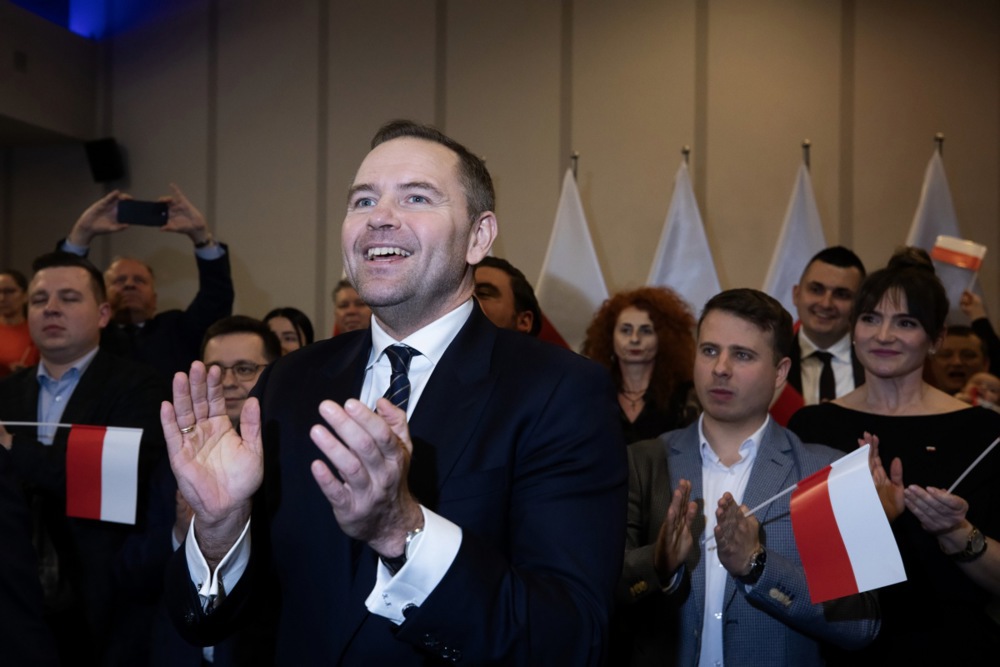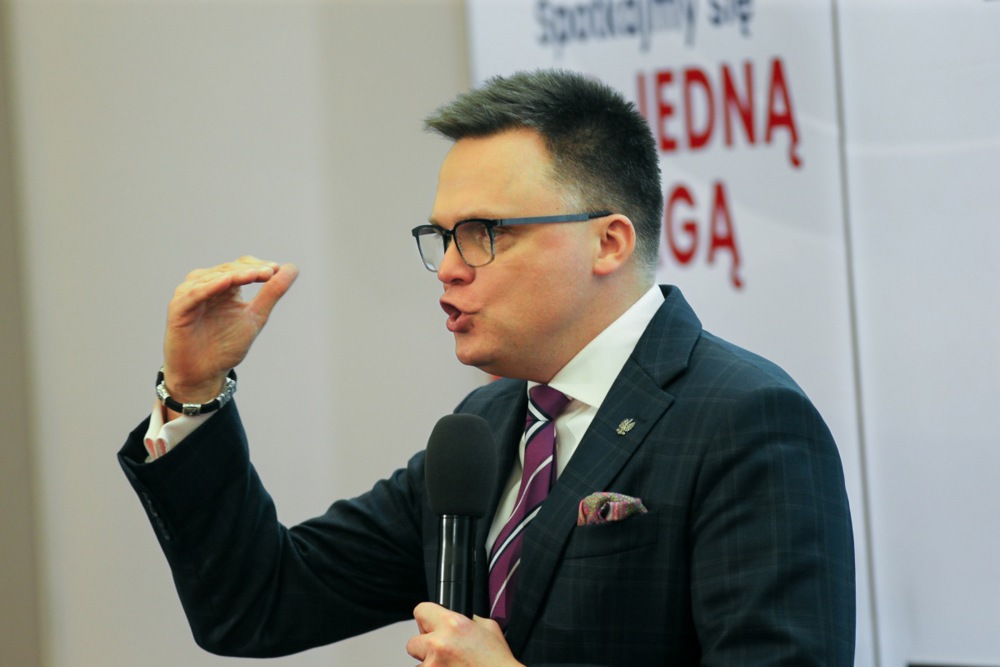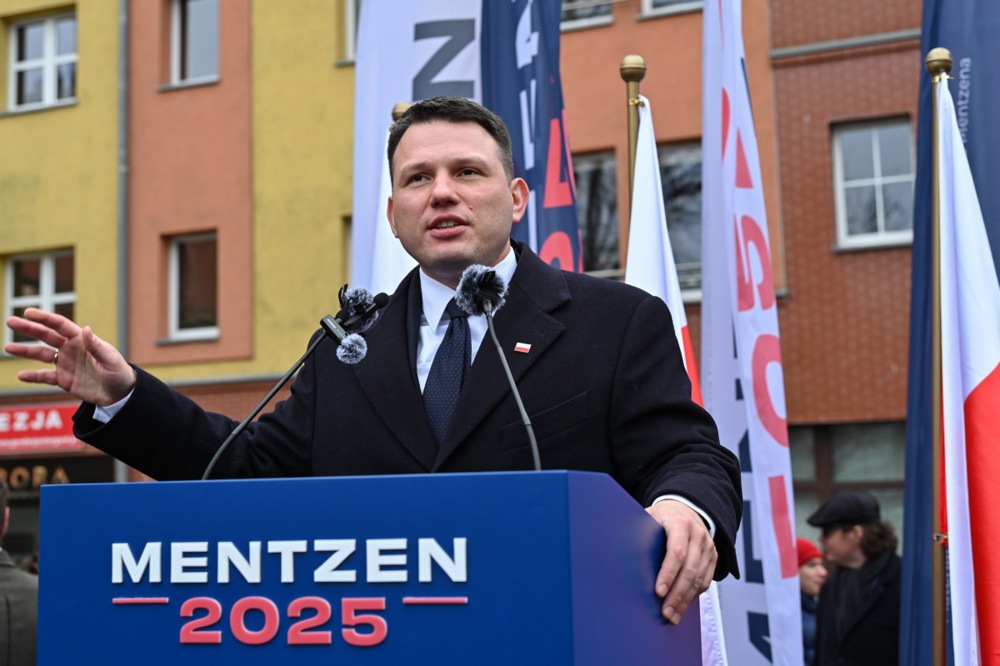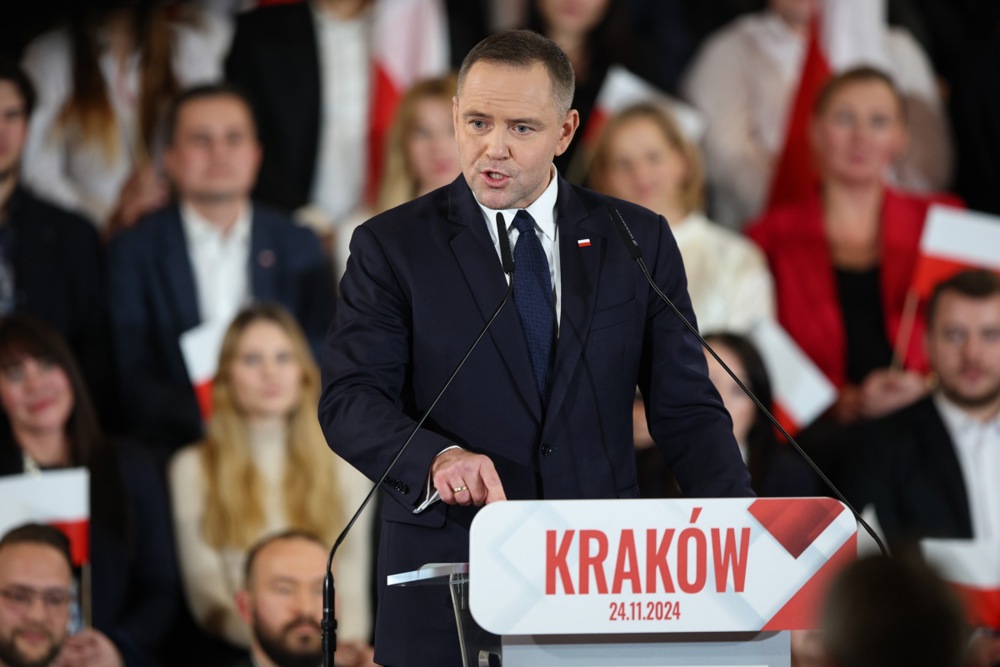Sławomir Mentzen, right-wing Confederation party candidate in May’s Polish presidential election and who had been surging in the polls, has come under fire for policies including his move for Polish universities to charge tuition fees to all students.
At present, most fees were paid by the State with only a quarter of those students who attended private colleges being charged fees.
Mentzen, whose poll support has surged from 10 per cent at the beginning of the year to 20 per cent in March, was also criticised over his plan for extending the ban on abortions even in cases where a woman has been a victim of rape or incest.
The Confederation party’s candidate made his position clear during an interview with popular internet broadcaster Kanal Zero on March 27 where he argued that “in an ideal world studies should be paid for by students, as in the USA and the UK”.
Rejecting criticism that charging tuition fees would exacerbate inequalities in education, Mentzen said the current system where “richer people get their studies for free as they have more money for private tutoring” while poorer people missed out was unfair and that a scholarship system for those students would be the answer.
Opponents from the Right and the Left targeted him over the idea. Prime Minister Donald Tusk’s centre-left Civic Coalition candidate Rafał Trzaskowski, who is the front runner in the election averaging 37 percent in the polls, said free education was a “huge achievement for our country and democracy,” and that “we need an educated society”.
The main opposition Conservatives (PiS) candidate Karol Nawrocki warned that charging tuition fees would hit poor students and that “Poles would not be happy with such a change”. He pledged that, if made president, he would never agree to introduce such charges.
Even Mentzen’s own party’s joint leader Krzysztof Bosak chose to distance the Confederation party from the tuition fee and abortion proposals by stating that they are not the party’s policy and that it has no plans to either change the financing of studies nor to tighten up further Poland’s abortion law.
It was a rare departure for PiS and Nawrocki to criticise Mentzen as both PiS and Confederation recognise that they will need each other’s support in the second round of the presidential election due two weeks after the first round to be held on May 18.
But Nawrocki’s team did not hide their delight at what they saw as Mentzen’s stumbles during his Kanal Zero interview. He posted on social media that he and his colleagues felt that “we’re back” after a few weeks in which the polling gap between Nawrocki, still in second place averaging 25 per cent, and Mentzen had been narrowing.
Nawrocki did not reciprocate to the message sent by Confederation’s senior politician Przemysław Wipler that, should Mentzen not make it to the second round, the party would support Nawrocki in the run-off. That was reportedly because the PiS candidate’s team took that to be a trap for their candidate to acknowledge the likelihood of Mentzen being in the final round of the election.
During the same interview with Kanal Zero, Mentzen also said that all abortions were a form of “killing” and when challenged whether he believed they were unacceptable even in cases of rape and incest he said he did.
As a result, his position on abortion has became the most radical of all candidates as even Nawrocki was not opposed to it in such cases. The candidates from the centre-left majority parties backing Tusk all supported liberalisation of Poland’s stringent abortion laws.
PiS itself suffered an electoral backlash when the Constitutional Tribunal, or court, introduced a ban on so-called eugenic abortions in cases of damage to the foetus. That move led to mass protests and party support falling by more than 5 per cent in opinion polls.
For most of his voters, it was Mentzen’s free-market economic policies rather than Conservative social values that were his main selling point.
Although they have socially liberalist views on issues such as abortion, Mentzen’s voters often saw the “cancel culture” they associated with the “woke” Left as a greater threat to their personal freedoms than the religious Right. They also supported Mentzen’s messages on reducing taxes, curtailing social programmes, opposition to migration and the European Union’s Green Deal and criticism of blanket support for Ukraine.
Mentzen’s party, though, will want to avoid a repeat of the 2023 parliamentary election in which it peaked at 15 per cent in the polls during the summer only to finish with 7 per cent come polling day in October.





